The Inter-American Development Bank (IDB) reached out to more than 9,000 interested parties in 26 countries who provided input to strengthen the design and implementation of the proposed new Access to Information Policy.
With the completion of twenty real-time consultations, as well as the 120-day deferred consultation, two of the three phases of the public consultation process were completed, in which input was received in English, Spanish, French and Portuguese from representatives of indigenous peoples, women’s groups, Afro-descendant groups, LGTBIQ+ collectives, chambers, organizations working in open government, transparency and access to information.
We were able to achieve the highest standards of inclusion and diversity both geographically and in terms of organizational profiles throughout Latin America and the Caribbean.

With the interdisciplinary work of different Bank units, forming a team of more than 60 professionals led by the IDB’s Vice-Presidency for Countries, the initial objectives were surpassed with the confirmation of thousands of people participating in the virtual and face-to-face consultations. This was a milestone achieved thanks to a comprehensive inclusion strategy that included massive and focused communication campaigns in the region, reaching:
-
-
20 public consultations
-
1,100 people confirmed
-
+150 people mobilized internationally
-
+9,000 organizations contacted in English, Spanish and Portuguese
-
+600 calls + e-mails sent
-
+60 hours of direct exchanges
-
26 countries from Latin America and the Caribbean represented
-
Participation of indigenous peoples, Afro-descendants, farmers, LGTIQ+ organizations, women’s groups.
-
Participation of chambers, organizations and experts on transparency, access to information and open government.
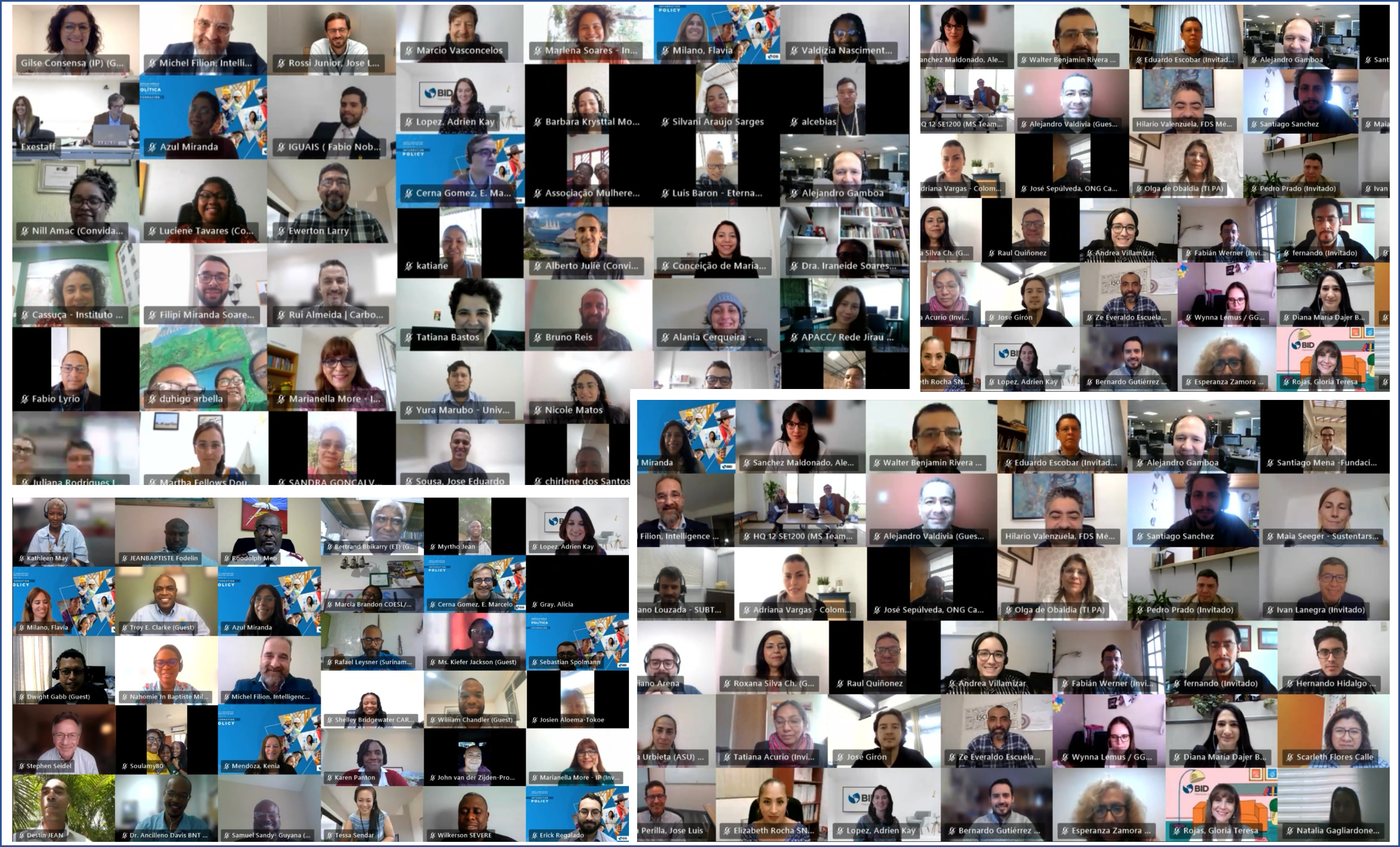
Part of the hundreds of participants in the virtual consultations representing indigenous peoples, Afro-descendant groups, women’s groups, LGBTIQ+ collectives, chambers, organizations working on issues of open government, transparency, access to information, in English, Spanish and Portuguese.
The virtual and face-to-face public consultations were attended by representatives of organizations from Argentina, Bahamas, Barbados, Belize, Bolivia, Brazil, Chile, Colombia, Costa Rica, Dominican Republic, Ecuador, El Salvador, Guatemala, Guyana, Haiti, Honduras, Jamaica, Mexico, Nicaragua, Panama, Paraguay, Peru, Suriname, Trinidad & Tobago, Uruguay and Venezuela, as well as organizations from Canada and the United States working in the region.
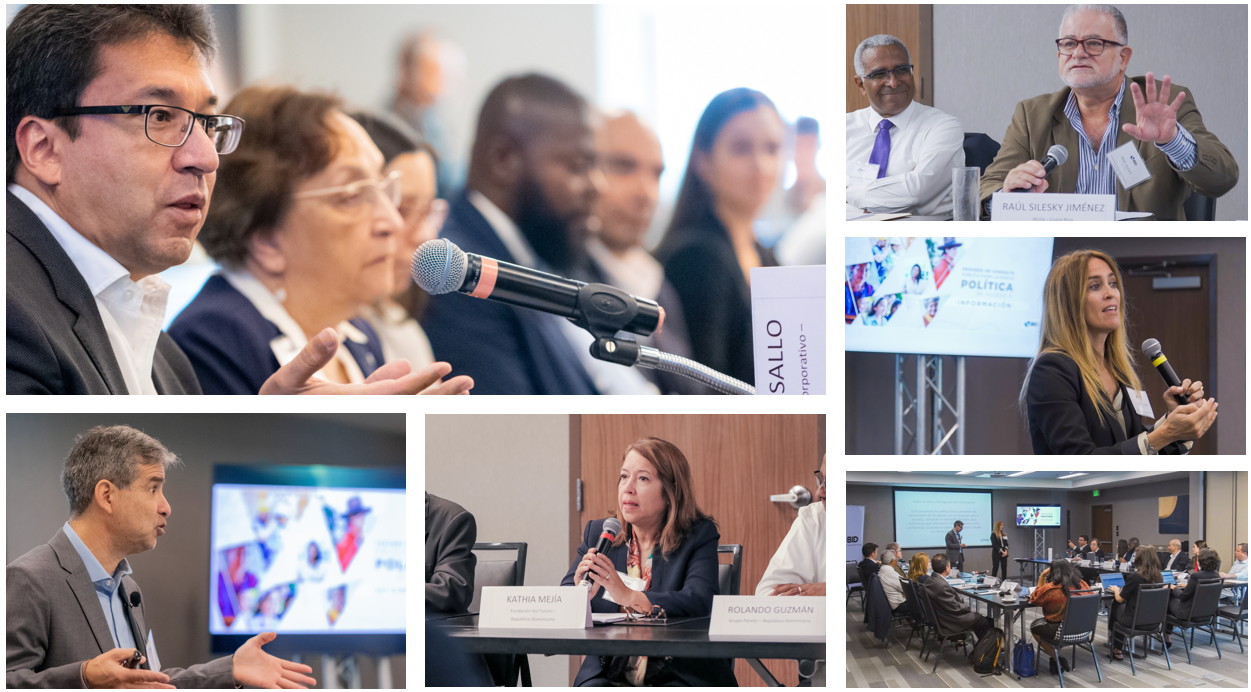
Public consultation held in Costa Rica: with the participation of representatives from Belize, Costa Rica, El Salvador, Guatemala, Haiti, Honduras, Mexico, Nicaragua, Panama and the Dominican Republic: Grupo Pareto, Fundación Sur Futuro, Fundación Salvadoreña para el Desarrollo Económico y Social (FUSADES), Cámara Salvadoreña de Tecnologías de la Información y Comunicaciones (CASATIC), Acción Ciudadana, Instituto de Gobierno Corporativo, Instituto de Prensa y Libertad de Expresión (IPLEX), Academia de Centroamérica, Ministère de la Culture, UWI Open Campus Belize, Asociación de Investigación y Estudios Sociales (ASIES), Sumarse and the Centro Latinoamericano para la Competitividad y el Desarrollo Sostenible.
Thanks to the inclusion of a diverse range of interested parties, the process allowed us to understand the robustness of the proposal from two perspectives: 1. the implementation of the policy, with input from stakeholders from the field; and 2. the design of the new policy proposal based on comments from organizations with expertise in transparency issues.
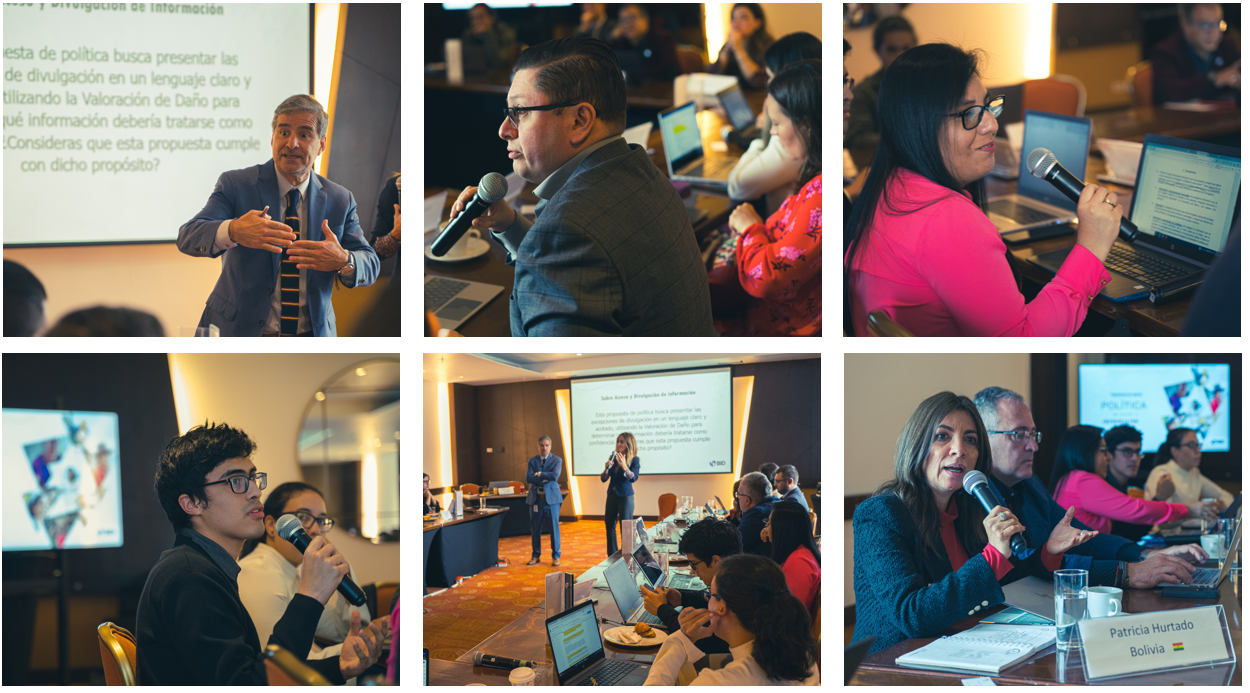
Public consultation held in Colombia: attended by participants from Bolivia, Colombia, Ecuador, Peru and Venezuela: ADESPROC Libertad GLBT, Internet Bolivia, Fundación Iguales, Dejusticia – Centro de Estudios de Derecho, Justicia y Sociedad, Journalism Program (Pontificia Universidad Javeriana), Fundación para la Libertad de Prensa (FLIP), Corporación Acción Ciudadana, Ambiente y Sociedad, Fundación Ciudadanía y Desarrollo (FCD), Fundación Esquel, Grupo Faro – Ecuador, Instituto Nacional de Transparencia, Acceso a la Información y Protección de Datos Personales, Pontificia Universidad Católica del Perú, DAR, I CLOUD and Espacio Público.
When did we start and how do we continue towards 2023 for the third and final phase?
The public consultation process began in 2019 with the Policy Profile, based on the review of the current Access to Information Policy, an initiative that provided value and enriched the drafting of a new document. Based on the results of that instance, and following the recommendations from the Policy and Evaluation Committee, a new policy proposal was presented to the Board of Executive Directors.
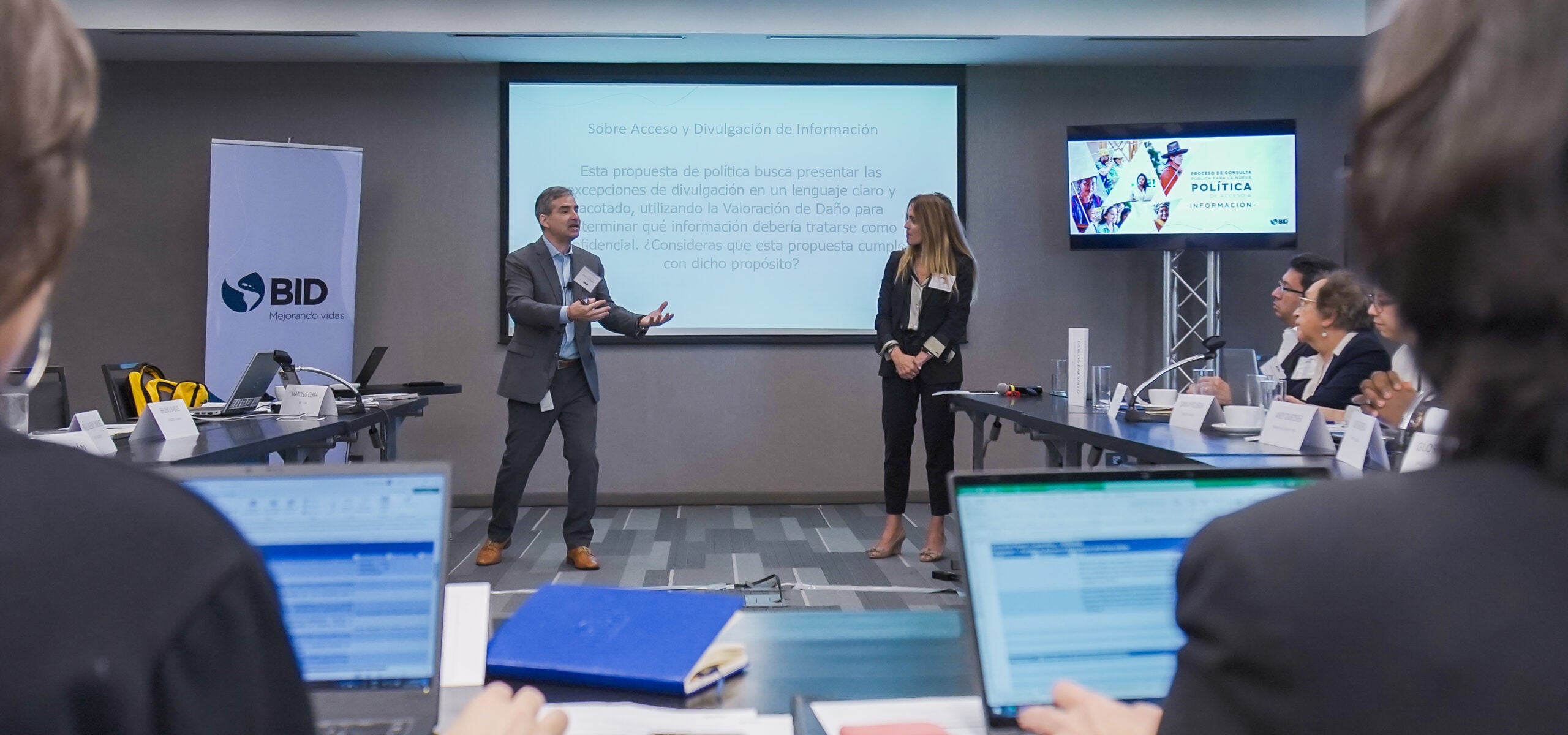
IDB specialists who led the process and presented the main aspects of the new Access to Information Policy proposal.
Following the approval of the proposal by the Board of Directors, a new public consultation process was opened with the objective of obtaining a policy that seeks to maximize access to information by adopting clearer language, reducing disclosure exceptions and simplifying procedures.
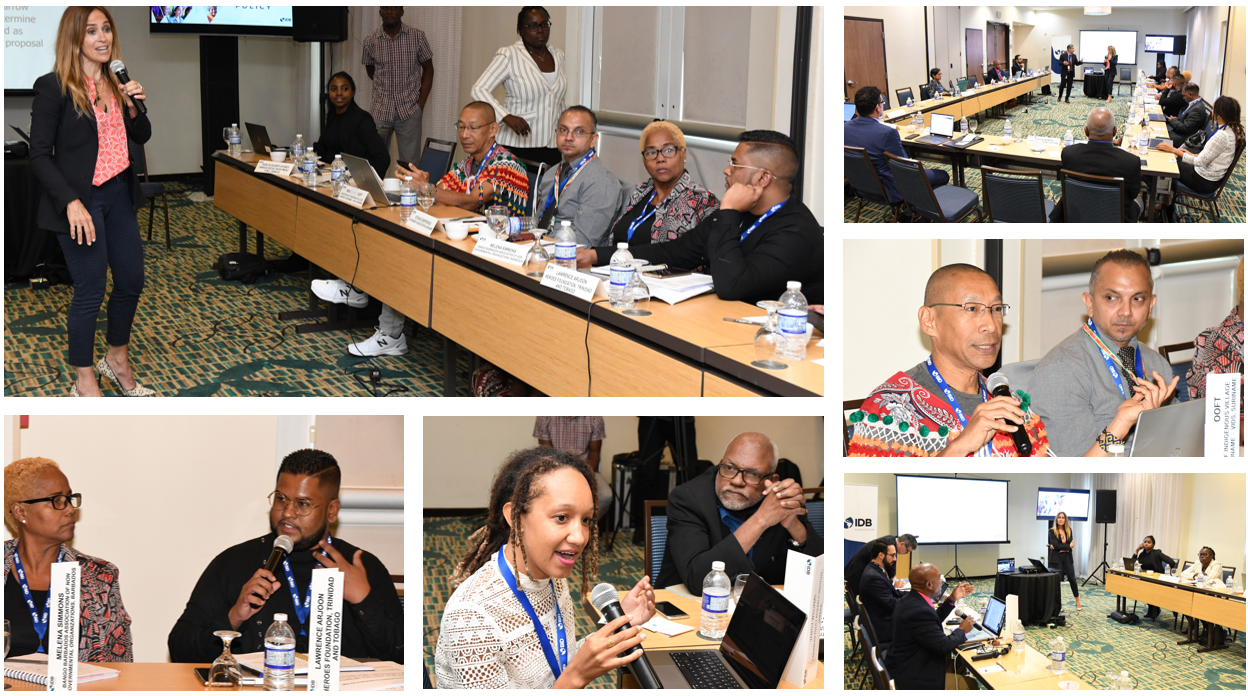
Publc consultation held in Jamaica: with the particiption of people from Bahamas, Barbados, Guyana, Jamaica, Surinam y Trinidad & Tobago: Organization for Responsible Governance; Leadership, Esteem, Ability, Discipline (LEAD), Bango Barbados Association of Non-Governmental Organizations, Guayana Press Association, Transparency Institute Guyana Inc, University of Guyana, Jamaica Accountability Meter Portal (JAMP), Jamaica Social Investment Fund, National Integrity Action, Rise Life Mangament, Economist Association Suriname, Projekta Foundation, Association of Indigenous Village Leaders in Suriname (VIDS), Heroes Foundation, Caribbean Policy Research Institute, Ethics Research Centre y Institute of Law and Economics.
About the final phase of the process
Given the growing interest and at the request of various organizations, the IDB extended the public consultation period for receiving input from 90 to 120 days, closing on December 28, 2022. During this period, all interested parties provided comments through the Public Consultation Portal.
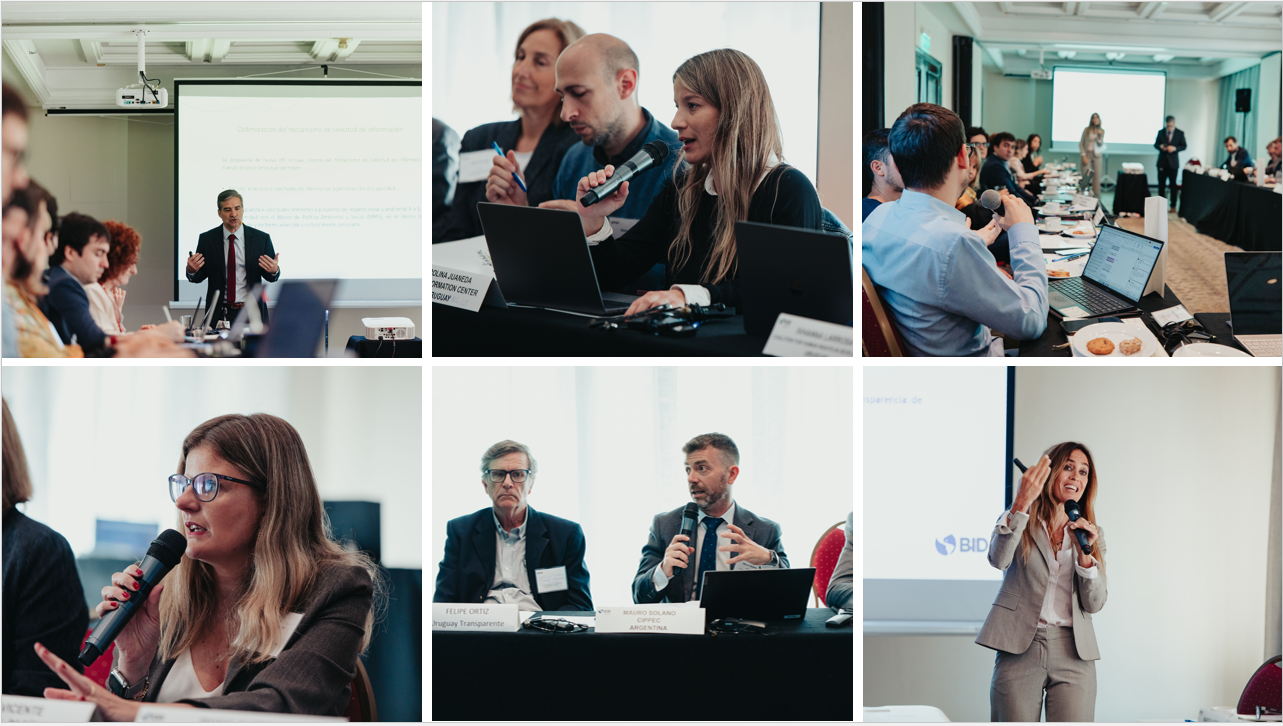
Public consultation held in Uruguay: representatives of reknowned organizations from Argentina, Brazil, Chile, Paraguay and Uruguay participated: Centro de Implementación de Políticas Públicas para la Equidad y el Crecimiento, Fundación Directorio Legislativo, Iniciativa Latinoamericana por los Datos Abiertos (ILDA), Foundation for the Development of Sustainable Policies, Bank Information Center, FARN, Fundación Cauce, Artigo 19, Observatório Social do Brasil, Kodea, Espacio público, Mujeres del Pacífico, Sustentarse, Semillas para la Democracia, Reacción, Centro de Estudios Ambientales y Sociales (CEAMSO), DATA Uruguay, Uruguay Transparente: Comisión Uruguaya de Lucha contra la Corrupción, International Development Law Organization and Coalition for Human Rights in Development.
Between approximately December 2022 and March 2023, work will continue on processing all the inputs received and preparing the new policy document that will be shared publicly after receiving comments and recommendations from internal IDB teams
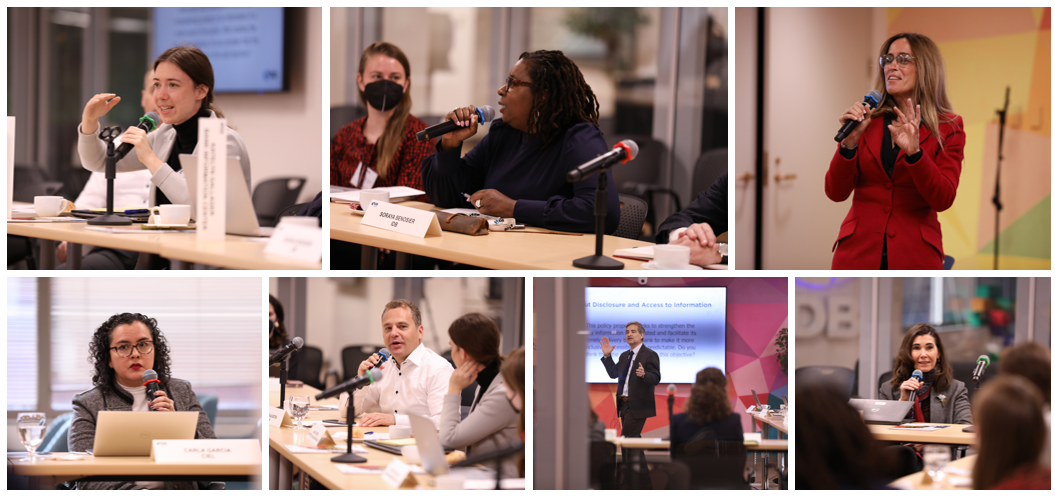
Public consultation held in the United States: attended by representatives of organizations working in the areas of open government, transparency and access to information: American University, Bank Information Center, Center for International Environmental Law, International Finance Corporation and World Bank.
Leave a Reply